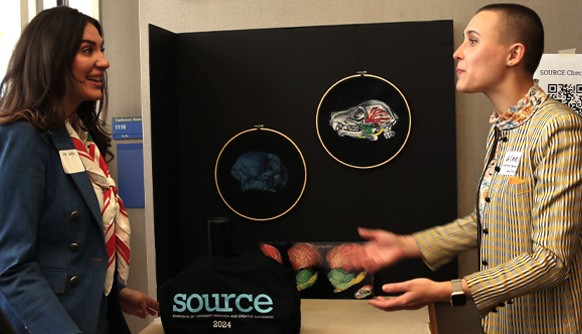News
Q&A with Debra Bush-Ford: Financial Literacy Month
April 16, 2021
April is National Financial Literacy Month, established by the U.S. Senate in 2003 to raise public awareness of the importance of financial literacy and maintaining smart money-management habits.
In recognition of this month and the importance of financial literacy for all college students, The Box spoke with Debra Bush-Ford, New York Tech associate director of financial aid, who recently received the New York State Financial Aid Administrators Association (NYSFAA) Region VI Ajana D. Wilkinson Service Award.
What should all students and families do to make sure college is affordable to them?
Compare the cost of attendance, minus the gift aid and loans, of colleges you are considering. Then, compare the out-of-pocket expense with your financial budget—what you can really afford to spend. Many people just look at the top-line tuition, but it’s the net tuition that is the number you should use when developing your financial plans.
One of the main roles of the Office of Financial Aid is to meet with students and families, so let us help you achieve your educational goals by providing and informing you of all the financial resources you are eligible to receive.
How can students avoid common pitfalls in their budgeting process?
Create a budget if you don’t already have one—and make sure to review and adjust your budget if your financial situation changes.
What is one important point everyone should know about when filling out the FAFSA?
When filing the FAFSA, you should always use the Data Retrieval Tool (DRT), which retrieves all student and parent financial information directly from the IRS. This saves a lot of time and ensures the accuracy of the information you’re providing.
Is filing the FAFSA as early as possible really necessary?
You want to file the FAFSA early enough to be able to compare your options and make timely admission decisions. There also may be financial aid available on a “first-come, first-served” basis only for eligible early filers. The FAFSA is available online each year after October 1.
What are some good resources for students who want to become more financially literate for everyday purposes and for paying for college in particular?
The Office of Financial Aid web page has lots of great information about financial literacy. You’ll also find resources the NASFAA web page for students and parents, and on the Federal Student Aid website.
How can students find out about scholarships related to their majors that can help them pay for college?
We list a number of resources on our web page dedicated to private scholarships.
How does New York Tech work with students to figure out their financial obligations, budget, opportunities, etc. on an individual basis?
The Office of Financial Aid is available daily on weekdays, by phone, Zoom, or in-person to help families assess their financial needs and administer one-on-one assistance.
What is the most valuable piece of advice you could give to students or their families related to finances and paying for college?
File all of your applications early, use the FAFSA Data Retrieval Tool, and don’t be afraid to ask questions—lots of questions!





